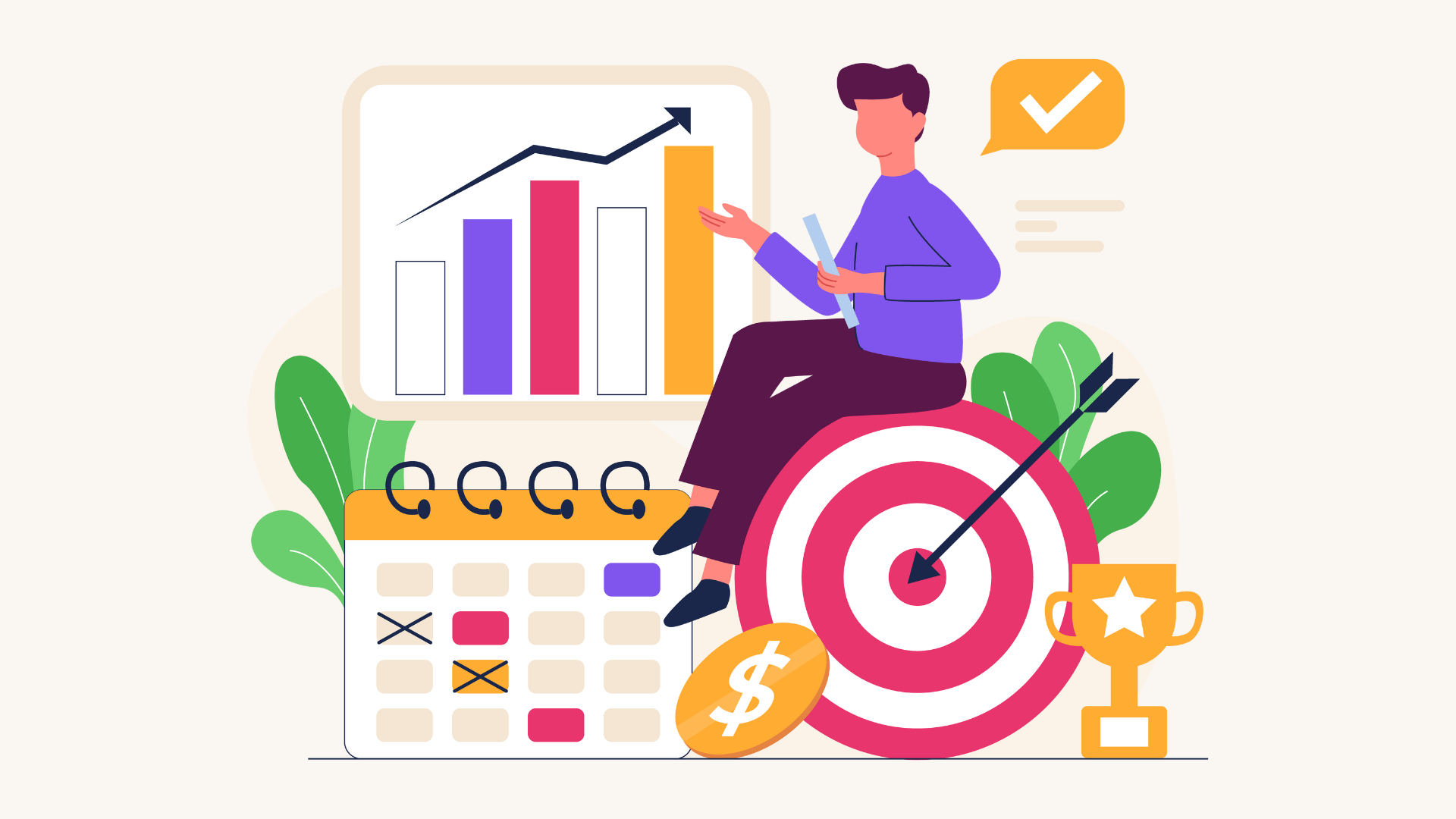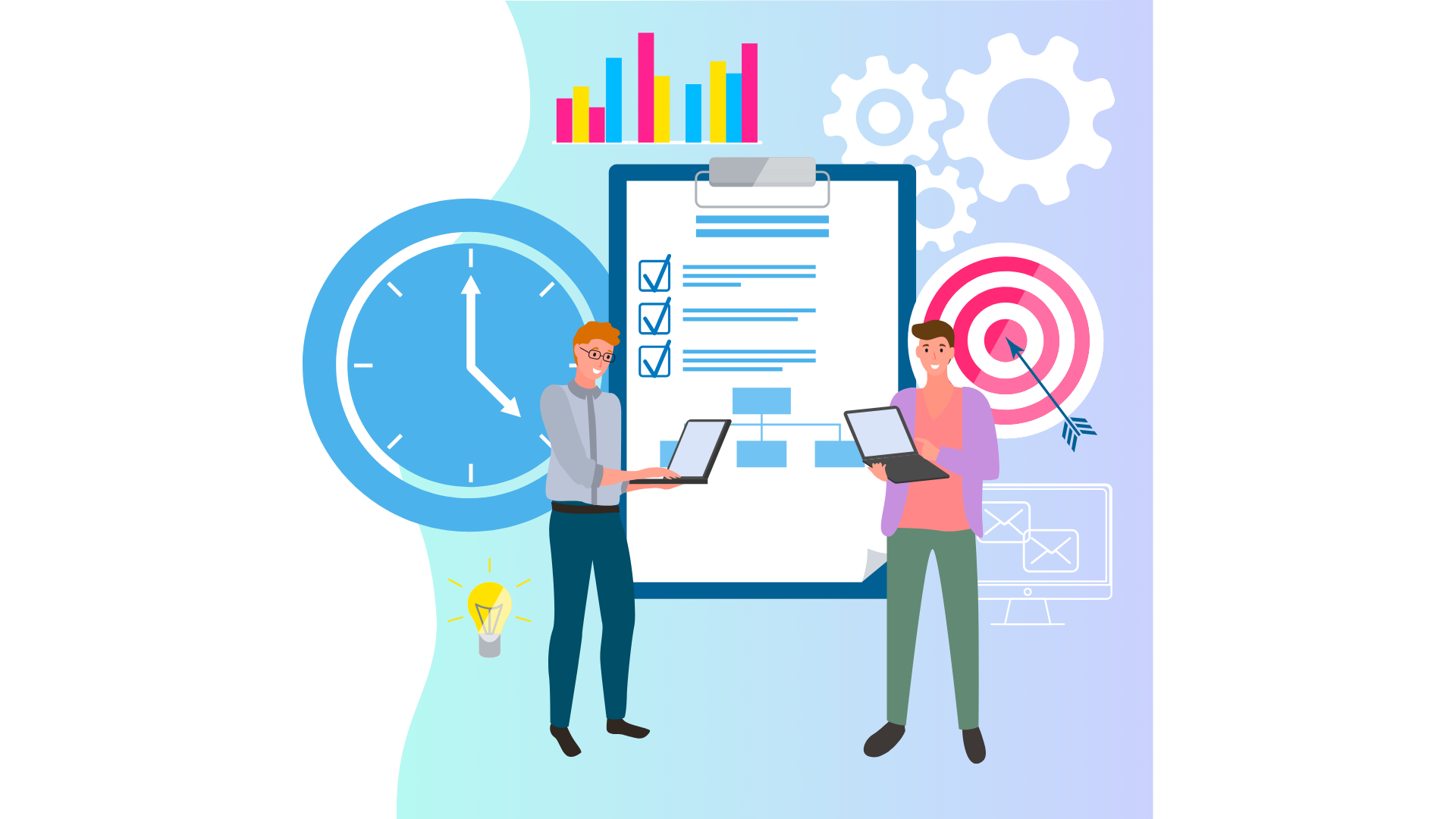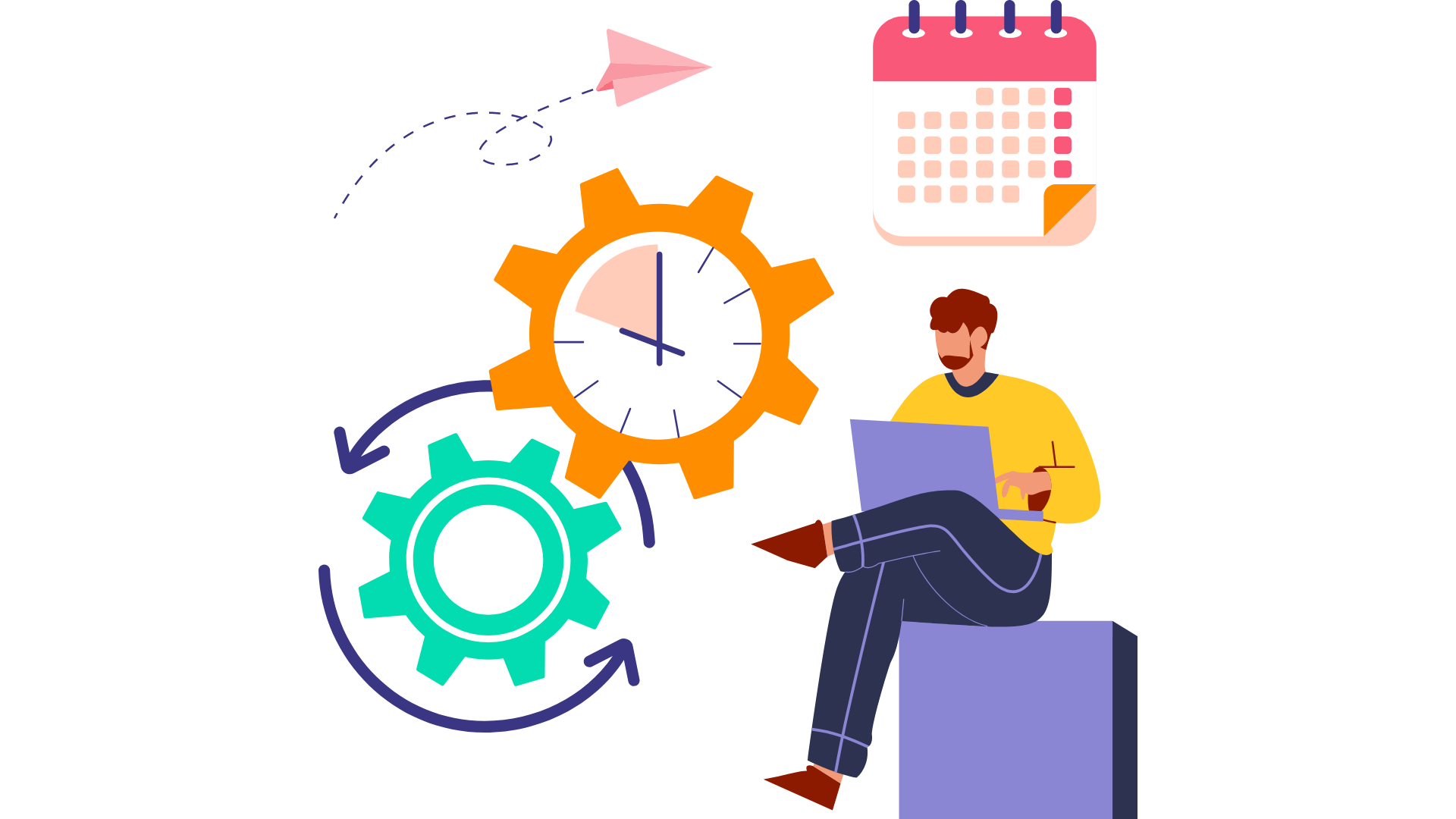Personal development is all about growing and improving yourself in different areas of life. Think of it as a lifelong adventure where you’re constantly learning and evolving. In this ultimate guide, we’ll dive into some awesome personal development strategies that can help you thrive, reach your goals, and become the best version of yourself. Whether you’re aiming to build new skills, boost your confidence, or just feel better overall, these strategies are here to support you every step of the way.
Table of Contents
1. Understanding Personal Development
- Lifelong Journey: Personal development is a continuous process that spans your entire life, focusing on ongoing self-improvement and growth.
- Self-Discovery: This involves understanding your strengths, weaknesses, values, and passions to align your actions with your true self.
- Goal Setting: Essential for creating a clear vision and direction for your growth, ensuring that your efforts are purposeful and structured.
- Skill Enhancement: Focuses on improving existing skills and acquiring new ones to adapt to changing circumstances and opportunities.
- Proactive Approach: Emphasize taking initiative and making deliberate choices that drive progress, rather than waiting for change to happen.
- Immediate and Long-Term Objectives: Balance your focus on short-term achievements with long-term aspirations to maintain steady progress and motivation.
2. Setting Clear Goals
- Purpose and Direction: Goals provide a sense of direction and motivation, helping you prioritize what matters most in your personal and professional life.
- SMART Goals Framework:
- Specific: Clearly define what you want to achieve.
- Measurable: Set criteria to track your progress and determine when you have achieved your goal.
- Achievable: Ensure the goal is realistic and attainable given your resources and constraints.
- Relevant: Align the goal with your overall objectives and personal values.
- Time-bound: Set a deadline to create a sense of urgency and accountability.
- Creating a Roadmap: Develop a detailed plan that outlines the steps needed to achieve your goals, including milestones and deadlines.
- Alignment with Desired Outcomes: Ensure that your goals are in harmony with your broader life objectives and personal values, making your efforts more focused and effective.
3. Developing a Growth Mindset
- Definition: A growth mindset is a belief that abilities and intelligence can be developed through dedication, effort, and learning.
- Importance: Embracing a growth mindset is essential for personal development as it encourages you to view challenges and setbacks as opportunities for growth.
- Transformation: This mindset shift helps you approach problems with a positive attitude, seeing failures as valuable learning experiences rather than obstacles.
- Building Resilience: By focusing on continuous improvement and learning, you can develop resilience, overcome difficulties, and enhance your overall effectiveness.
- Practical Steps: To cultivate a growth mindset, practice self-reflection, seek feedback, and embrace new challenges with enthusiasm and openness.
4. Enhancing Self-Awareness
- Foundation of Personal Development: Self-awareness involves understanding your strengths, weaknesses, values, and beliefs, which is crucial for effective personal development.
- Informed Decision-Making: Greater self-awareness helps you make better decisions, set realistic goals, and align your actions with your core values.
- Techniques to Enhance Self-Awareness:
- Mindfulness: Practice mindfulness to become more aware of your thoughts, emotions, and reactions in the present moment.
- Journaling: Regularly writing about your experiences and reflections can help you gain insights into your behaviors and patterns.
- Seeking Feedback: Obtaining constructive feedback from others can provide different perspectives and help you identify areas for growth.
- Tailoring Strategies: Use insights gained from self-awareness to customize your personal development strategies to fit your unique needs and goals.
5. Time Management and Productivity
- Key Component: Effective time management is crucial for maximizing productivity and achieving personal development goals.
- Prioritizing Tasks: Identify and focus on high-priority tasks that align with your goals, ensuring that you allocate your time and energy efficiently.
- Setting Deadlines: Establish clear deadlines for tasks to create a sense of urgency and maintain momentum in your work.
- Avoiding Procrastination: Develop strategies to overcome procrastination, such as breaking tasks into smaller steps and using productivity techniques like the Pomodoro Technique.
- Boosting Productivity: Mastering time management enables you to make the most of your available time, increase your productivity, and progress towards your personal development objectives more effectively.

6. Building Positive Habits
- Role of Habits: Habits significantly shape our lives, influencing our daily routines and long-term outcomes. Developing positive habits is crucial for personal development and well-being.
- Examples of Positive Habits: Incorporate regular exercise, daily reading, and gratitude practices into your routine. These habits contribute to physical health, mental stimulation, and a positive mindset.
- Establishing Habits: Start by setting clear, achievable goals for the habits you want to build. Begin with small, manageable changes and gradually build on them to create lasting habits.
- Maintaining Habits: Use tools such as habit trackers or accountability partners to stay committed. Consistency and perseverance are key to embedding these habits into your daily life for long-term success.
7. Effective Communication Skills
- Importance of Communication: Strong communication skills are essential for success in both personal and professional environments. They help you convey ideas clearly, build relationships, and resolve conflicts.
- Key Components:
- Active Listening: Focus on truly understanding what others are saying, rather than just waiting for your turn to speak.
- Clear Expression: Articulate your thoughts and ideas in a straightforward and coherent manner.
- Empathy: Show understanding and consideration for others’ feelings and perspectives.
- Improving Skills: Practice active listening, seek feedback on your communication style, and engage in regular conversations to enhance your abilities. Good communication fosters better relationships and can advance your career.
8. Emotional Intelligence
- Definition: Emotional Intelligence (EI) refers to the ability to recognize, understand, and manage your own emotions and those of others.
- Importance in Personal Development: High EI enhances decision-making, strengthens relationships, and improves resilience.
- Key Elements:
- Self-Regulation: Manage your emotions effectively and respond to situations calmly.
- Empathy: Understand and relate to the emotions of others.
- Effective Communication: Use your emotional awareness to communicate more effectively.
- Enhancing EI: Practice self-awareness through reflection, engage in empathetic listening, and seek feedback to improve your emotional management and interpersonal skills.
9. Continuous Learning
- Concept: Lifelong learning involves continually seeking new knowledge and skills throughout your life.
- Importance: Staying curious and open-minded supports both personal and professional growth, helping you adapt to changes and seize new opportunities.
- Ways to Learn:
- Formal Education: Enroll in courses or pursue degrees relevant to your interests.
- Online Courses: Utilize platforms that offer courses on various subjects.
- Self-Study: Read books, listen to podcasts, and engage in independent research.
- Creating a Learning Plan: Identify areas of interest, set learning goals, and allocate time for regular study. This approach ensures that your learning aligns with your personal and professional aspirations.
10. Building Resilience
- Definition: Resilience is the ability to recover from setbacks, adapt to change, and keep going in the face of adversity.
- Importance in Personal Development: Developing resilience helps you manage stress, overcome challenges, and maintain a positive outlook.
- Strategies for Building Resilience:
- Strong Support Network: Surround yourself with supportive friends, family, and mentors.
- Self-Care: Prioritize activities that promote your physical and mental well-being.
- Growth Mindset: View challenges as opportunities to learn and grow.
- Maintaining Resilience: Regularly practice stress management techniques, stay connected with your support network, and keep a positive, proactive attitude towards life’s difficulties.
11. Networking and Building Relationships
- Importance: Building strong relationships is crucial for both personal and professional growth. Effective networking can open doors to new opportunities, provide support, and offer valuable insights.
- Networking Benefits: Expanding your network can lead to career advancements, partnerships, and increased knowledge in your field.
- Effective Networking Tips:
- Be Authentic: Engage genuinely with others and show interest in their experiences and insights.
- Follow-Up: Maintain connections by following up regularly and offering support where possible.
- Attend Events: Participate in industry events, workshops, and social gatherings to meet new people.
- Maintaining Relationships: Build and nurture relationships by staying in touch, showing appreciation, and providing value to others in your network.
12. Financial Literacy
- Importance: Financial literacy is essential for making informed decisions about your finances, which reduces stress and supports long-term financial stability.
- Core Concepts:
- Budgeting: Track your income and expenses to manage your finances effectively.
- Saving: Establish savings goals and build an emergency fund.
- Investing: Learn about different investment options to grow your wealth.
- Practical Advice:
- Create a Budget: Develop a detailed budget to manage your spending and savings.
- Educate Yourself: Read financial literature or take online courses to enhance your financial knowledge.
- Seek Professional Help: Consider consulting a financial advisor for personalized guidance.
13. Physical and Mental Well-being
- Importance: Maintaining both physical and mental well-being is crucial for overall personal development and achieving your goals.
- Physical Health Tips:
- Exercise Regularly: Engage in physical activities that you enjoy to stay fit.
- Balanced Diet: Eat a variety of nutritious foods to support your health.
- Adequate Sleep: Ensure you get enough rest each night.
- Mental Health Tips:
- Manage Stress: Use techniques such as deep breathing or hobbies to reduce stress.
- Seek Support: Don’t hesitate to seek professional help if needed.
- Practice Self-Care: Prioritize activities that promote relaxation and mental clarity.

14. Creativity and Innovation
- Value of Creativity: Creativity and innovation are important for problem-solving and generating new ideas in various aspects of life.
- Nurturing Creativity:
- Engage in Creative Activities: Explore hobbies like writing, painting, or brainstorming.
- Challenge Yourself: Take on projects that push your creative boundaries.
- Create a Stimulating Environment: Surround yourself with inspirational materials and a conducive workspace.
- Enhancing Innovation: Stay curious, experiment with new approaches, and seek feedback to refine your ideas.
15. Giving Back and Volunteering
- Importance: Volunteering and giving back to the community can enhance personal growth and provide a sense of fulfillment.
- Benefits:
- Skill Development: Gain new skills and experiences through volunteering.
- Building Connections: Meet new people and expand your network.
- Personal Fulfillment: Experience a sense of accomplishment and purpose.
- How to Get Involved:
- Identify Causes: Choose causes that resonate with you.
- Find Opportunities: Look for local organizations or online platforms to volunteer.
- Commit Regularly: Offer your time and skills consistently to make a meaningful impact.
16. Balancing Work and Life
- Importance: Achieving a healthy work-life balance is essential for personal well-being and overall satisfaction.
- Strategies for Balance:
- Set Boundaries: Define clear limits between work and personal time.
- Prioritize Self-Care: Make time for relaxation, hobbies, and family.
- Manage Time Wisely: Use time management techniques to organize both work and personal activities effectively.
- Maintaining Balance: Regularly assess your work-life balance and make adjustments as needed to ensure it supports your well-being and growth.

17. Seeking Mentorship and Coaching
- Value of Mentorship: Mentorship and coaching provide guidance, support, and valuable insights for personal and professional development.
- Benefits:
- Support and Accountability: Receive encouragement and help with goal-setting.
- Insight and Wisdom: Gain knowledge from experienced mentors or coaches.
- Growth Opportunities: Discover new perspectives and opportunities for advancement.
- Finding Mentors:
- Identify Needs: Determine what guidance you require.
- Network: Connect with potential mentors through professional events or online platforms.
- Build Relationships: Develop a mutually beneficial relationship with your mentor or coach.
18. Embracing Change
- Importance: Embracing change is vital for personal development and adapting to life’s evolving circumstances.
- Benefits of Embracing Change:
- Opportunities for Growth: View changes as chances to learn and develop new skills.
- Resilience Building: Strengthen your ability to handle uncertainty and challenges.
- New Experiences: Embrace new situations and expand your horizons.
- Managing Change:
- Stay Positive: Maintain a positive outlook and focus on potential benefits.
- Be Adaptable: Flexibly adjust your plans and strategies as needed.
- Seek Support: Lean on your support network to navigate transitions effectively.
19. Mindfulness and Meditation
- Benefits: Mindfulness and meditation enhance self-awareness, reduce stress, and improve focus.
- Mindfulness Practices:
- Stay Present: Focus on the present moment to improve clarity and reduce stress.
- Daily Practice: Incorporate mindfulness exercises into your daily routine.
- Meditation Techniques:
- Start Small: Begin with short meditation sessions and gradually increase duration.
- Find a Comfortable Space: Choose a quiet, comfortable environment for meditation.
- Explore Methods: Experiment with different types of meditation to find what works best for you.

20. Reflection and Continuous Improvement
- Importance: Reflection is essential for evaluating progress, learning from experiences, and making necessary adjustments.
- Benefits of Reflection:
- Identify Strengths and Areas for Growth: Understand what’s working well and what needs improvement.
- Learn from Experiences: Apply lessons learned to future endeavors.
- Guide Personal Growth: Use reflections to set new goals and refine strategies.
- Effective Reflection Techniques:
- Regular Check-Ins: Schedule regular times to review your progress and experiences.
- Use Journals: Document your reflections and insights.
- Adjust Goals and Strategies: Make informed adjustments based on your reflections to enhance your personal development journey.
Conclusion
Personal development is an ongoing journey that requires dedication and a strategic approach. This ultimate guide to personal development strategies offers a comprehensive framework to support your growth and help you reach your full potential. By setting clear, achievable goals, embracing a growth mindset, and committing to continuous learning, you lay a solid foundation for personal and professional success.
Consistency is crucial in personal development. Implementing these strategies with commitment and perseverance will enable you to make meaningful progress and foster a more fulfilling life. Begin today by incorporating these practices into your routine, and you’ll be well on your way to achieving your goals and enhancing your overall well-being.
Discover more from Positive Treasure
Subscribe to get the latest posts sent to your email.




